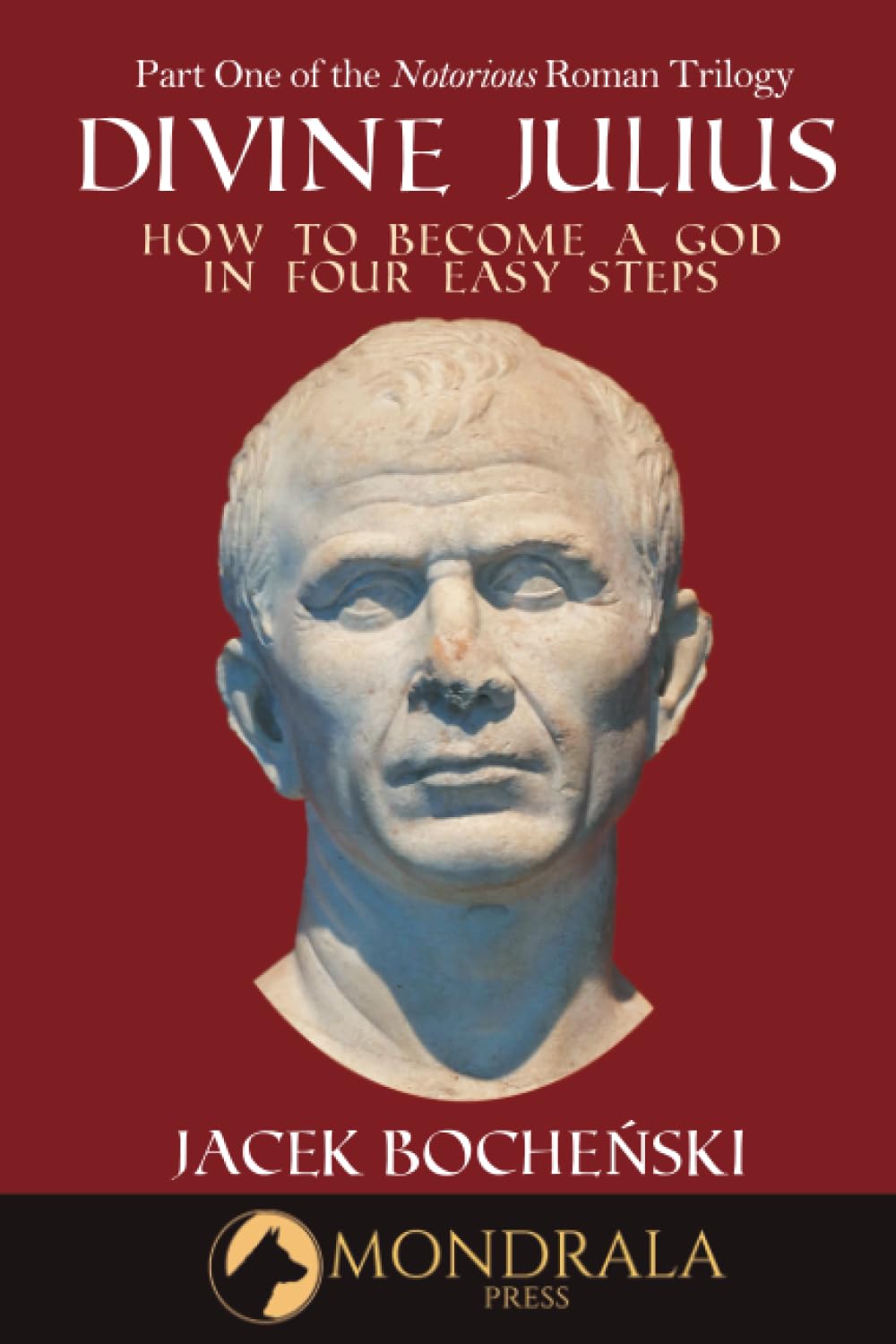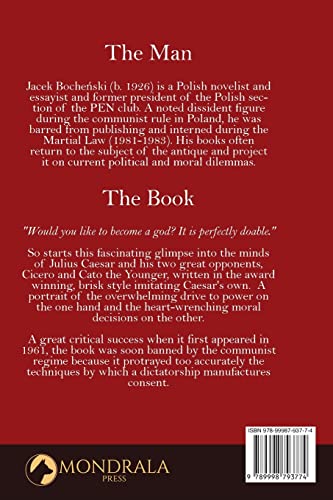“Would you like to become a god? It has been done before, you know.” Or… how to corrupt the elites and overturn the Republic to become Dictator for Life. Bonus: how key figures in the republic will respond to your project: oppose you? refuse cooperation? play dumb? waffle? play along? This ironic, picaresque “manual” launched in 1962 to a huge critical applause in Eastern Europe but was–within days–banned by the communists: they did not like how accurately it described the mechanisms of political control. Divine Julius is not just a great modern classic, an evergreen bestseller 60 years after its initial publication, and–a ripping yarn written in Caesar’s own, telegraphic style. The book is also a historical monument: its appearance played a dramatic role in the lives of its author and his readers–the people who stood up against tyranny and finally broke the Soviet system. The author had not foreseen it. He had innocently set out to read and comment on a 2,000-year old book–Cesar’s De Bello Gallico–thinking that such an esoteric subject might free him from censorship oversight. Little did he know that a book about Julius Caesar would make him a state enemy, an opposition activist, a political prisoner, and one of the leaders of the Solidarity movement. Along with the other two volumes of the Roman Trilogy, Divine Julius is probably the most important literary work to come out of Eastern Europe since World War II, not only on account of its insightful political commentary, but also of its astonishingly beautiful, intelligent, original prose. If you like such literary authors as Thomas Mann, Orhan Pamuk, Kazuo Ishiguro, or Gabriel Garcia Marquez, you will love this. Pick up your copy today. Jacek Bochenski (b. 1926) is the leading literary figure of modern Poland, a prolific author, classicist scholar, former president of the Polish PEN Club, former president of the Polish Authors’ Society (SLP), former president of the Intellectual Property Association (ZAIKS), former member of The Citizen’s Committee serving the office of President Lech Walesa, a highly-regarded and much-decorated freedom fighter, banned by communist censorship, interned during the Martial Law in Poland (1981-1983), and today widely honored as the Nestor of Polish literature, holder of the Grand Cross of the Order Polonia Restituta, of the Gold Medal Gloria Artis, and Grand Ambassador of Polish Literature.
Divine Julius: Or, How to Become a God in Four Easy Steps (The Notorious Roman Trilogy)
$15.99
This acclaimed historical and literary work provides a satirical analysis of political power through the lens of Roman history, enhancing studies in literature and political science.
Additional information
| Weight | 0.286 lbs |
|---|---|
| Dimensions | 15.2 × 1.2 × 22.9 in |







Reviews
There are no reviews yet.